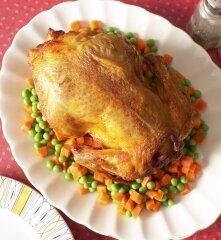RNHA
??? Registered Nursing Home AssociationNutrition and older people
|
Good nutrition is one of the most essential elements in ensuring the health and welfare of older people. Whether they are living in their own homes, receiving treatment in hospital, or being looked after in a nursing home or residential care home, older people need a balanced and wholesome diet.?Importantly, they should also enjoy their food. |
 |
?
Campaigning for the highest standardsThe RNHA has long campaigned for the highest possible standards of nutrition in nursing homes.?Together with the Royal College of Nursing, the British Dietetic Association and the British Association for Parenteral and Enteral Nutrition (BAPEN), we supported the development of?the MUST screening tool to identify early signs of potential malnutrition. We have repeatedly called for greater investment in community dietetic services so that their invaluable expertise can be made more widely available to nursing homes.?We believe this should be a priority for primary care trusts, especially in those parts of the country where the NHS dietetic service is currently under-developed. We have also called for increased funding by central and local government in services for older people.?Extra resources are needed, we believe, not only to help raise overall standards of care but also to enable care providers, including nursing homes, to spend more on food and nutrition.? As the Commission for Social Care Inspection points out, care homes have on average only around ?2.43 per day with which to feed their residents.?It is a tribute to care homes that so many of them manage within this very limited budget to provide good quality, nutritious food. Key documents and policy initiativesHere, in this part of our web site, we explain and comment on many of the key documents and policy initiatives relating to nutrition and older people, including:
|
?
?
?
?
?
?
?


